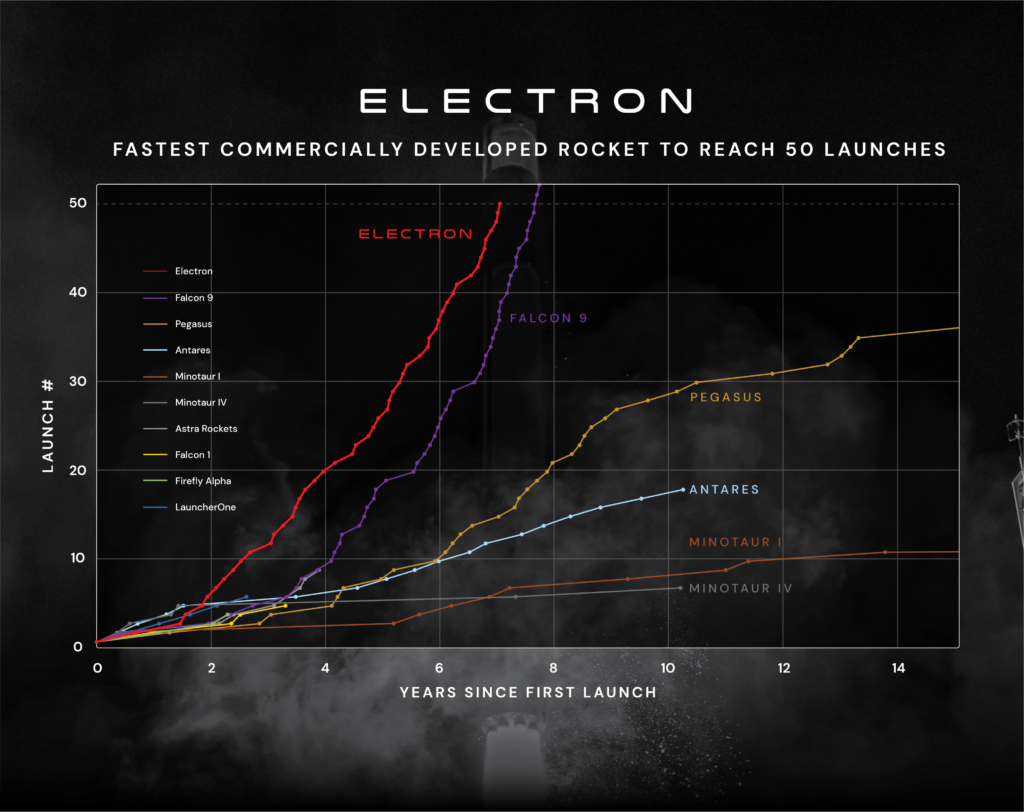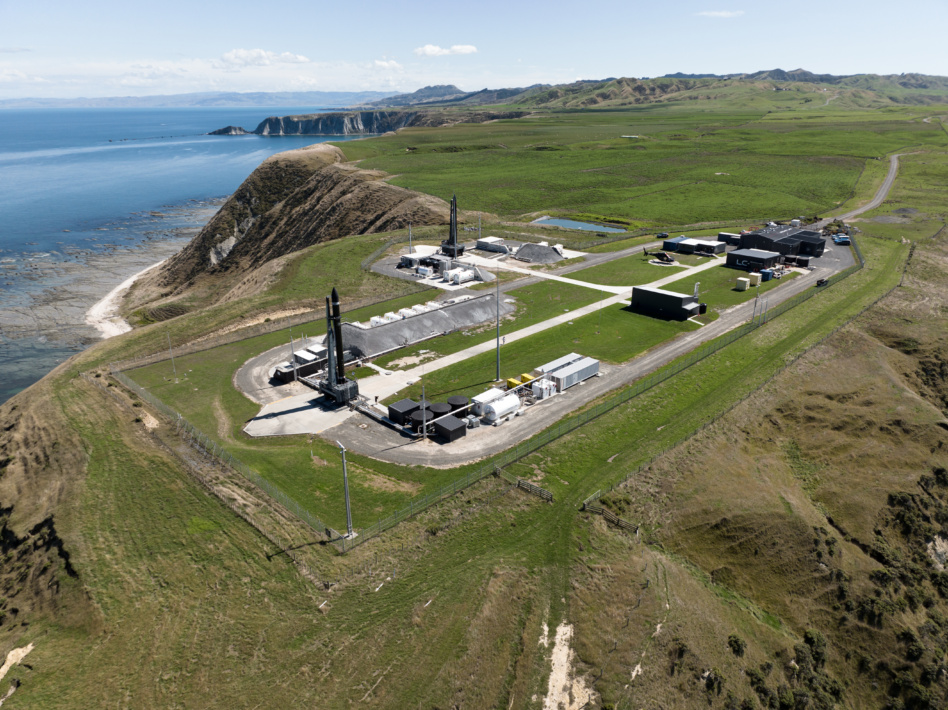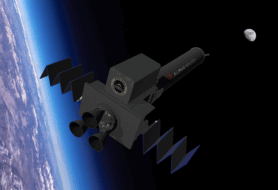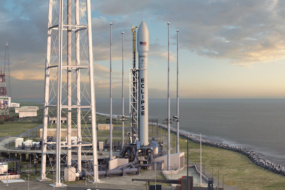Rocket Lab’s Electron rocket marked its 50th launch today after seven years and one month in service, a new record for a commercial launch vehicle hitting that mark. It eclipsed the previous record set by SpaceX’s Falcon 9, which took just under seven years and nine months to hit that pace.
In that same time, Rocket Lab ($RKLB) has also chased SpaceX up the value chain as a fully-integrated space company that builds spacecraft of its own. Payload caught up with recently-knighted CEO and founder Peter Beck to talk about the company’s path to success, and a little light trash-talking.
This interview has been condensed and edited.
I can remember writing stories six or eight years ago about all the small launch companies contending to be the next SpaceX—how did Rocket Lab come out on top?
We were not the preordained winner of the small launch race. That’s a fact. You can go through all those articles and you see plenty of people saying, oh, they’re at the wrong payload class, or, oh, you know, all wrong price point, but we felt like we had a really good understanding of what the market needed.
And then, look, execution is everything in this game, as you know. I can remember running around Silicon Valley trying to raise small amounts of money when Virgin Orbit had $1.1B dumped into them. And everybody was saying to me, well, how can you compete with that? Like you’re trying to do a $30M capital raise. How are you possibly going to beat that? And I would just say that … capital is absolutely key, but it’s not everything. And, the team, the design philosophy, and the execution matter just as much.

How do you maintain that culture as a much larger, publicly-traded company?
That’s something I work on every day. As long as you’ve got great engineers, then you can always attract great engineers….It’s twice as hard to get hired into Rocket Lab than it is to get into Harvard. So the bar is extraordinarily high. And we will hire somebody with a far lower grade that has actually done something over somebody who has straight [A’s] but goes home and plays video games at night.
Your comments about SpaceX underpricing its Transporter rideshare flights to undercut competitors got plenty of attention—do you have any response to the reaction?
I didn’t read a thing…The only thing I’ll say is, there’s no accidental monopoly here. And that’s fine. If you’re in business, you do what you can to make sure your business is more successful than anybody else’s. There is absolutely intention to box everybody out. And it doesn’t take a rocket scientist, excuse the pun, when you sell the same rocket to a government customer for $90M and then fly it in a rideshare mission for $9M, for the same whole rocket—you know, there’s no fuzz on what’s going on there. That’s your rocket, your business. That’s why we’re building Neutron. We are intending to compete. So don’t cry, just compete.
The US Space Force just announced the results of the bidding for lane 1 of the next set of National Security Space Launch contracts, and SpaceX, ULA, and Blue Origin won out in the absence of other competition. Rocket Lab had hoped to bid before delaying the Neutron’s first flight…what’s the latest on that rocket?
We’ll be a competitor on NSSL, and look forward to giving the government some diversity. … A lot of people focus on the rocket, but the way I look at it is a rocket program is 20% rocket, 80% infrastructure. And unfortunately, of that 80%, it feels like 30% is concrete. We’re not just building a rocket. We’re building the factory that builds the rocket and we’re building the launchpad that launches the rocket and so on and so forth.We are pushing hard, that’s for sure, to have something on the pad sort of mid next year.
What’s the difference between working on your own launch site and building on a government-owned launch site at Wallops?
Well, the first money hit the bank for Electron in 2014, and we had our first launch in 2017. We sat on a launch pad at Wallops for two and a bit years waiting for license and regulatory, you know, [Automatic Flight Termination System] approval. Literally, it almost took the same amount of time to get that as it did to develop Electron in the first place. And look, to be fair, a lot of that is groundwork for Neutron. So Neutron won’t suffer the same kind of challenges, but, owning your own range is just amazing.
You’ve said you expect Rocket Lab to build its own constellation of satellites in LEO; can you give us a hint at what they’ll be doing?
Sometimes it’s best to be the first mover and sometimes it’s not. And from our perspective, if there is a wildly successful application in orbit, no monopoly survives the test of history. Whatever that is, what we are trying to make sure of is that we are in the very best position possible to compete. We need Neutron equally as well to provide an alternative to a Falcon 9, as well as providing our own space access for our own stuff in the future.
On our way to the next fifty Electron launches, when do you think we’ll see our first reuse?
Candidly…the most important thing is to not interrupt the production team with new things and just keep the production rate of Electron where it needs to be to support the manifest best this year. [Electron reuse] is not that important to the business on a margin standpoint, or at this point, even from a technology standpoint. The reusability team and the recovery team are 100% directed and focused on other things, mainly Neutron, of course.




